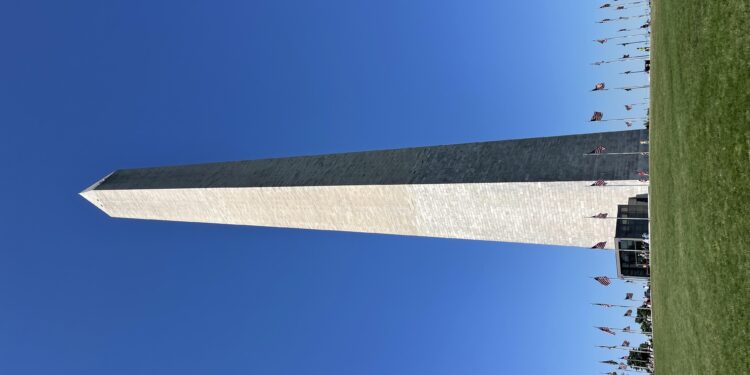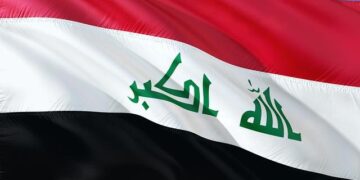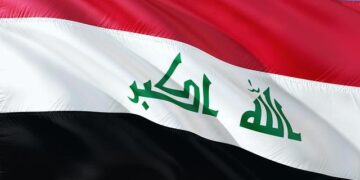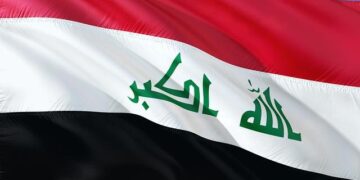In the shifting geopolitical landscape of the Middle East, the role of Iran’s proxy militias in Iraq has emerged as a focal point of tension and concern for U.S. policymakers. As these armed groups continue to wield significant influence, undermining both Iraqi sovereignty and regional stability, experts advocate for a robust U.S. response. A recent report from the Foundation for Defense of Democracies underscores the urgency of Washington’s involvement, asserting that the United States must exert greater pressure on Baghdad to confront and disarm these militias. With the potential to reshape Iraq’s political dynamics and counter Iranian expansionism, the call to action emphasizes the need for diplomatic and strategic initiatives that prioritize both Iraqi security and the broader interests of the international community. As discussions intensify, the future of Iraq-and the delicate balance of power in the region-hangs in the balance.
Washington’s Strategic Imperative: Addressing the Threat of Iranian Proxy Militias in Iraq
The presence of Iranian proxy militias in Iraq represents not just a regional security threat but also a significant challenge to U.S. interests in the Middle East. These groups, often acting with impunity, have been implicated in a range of destabilizing activities that undermine Iraqi sovereignty and contribute to sectarian tensions. In this context, Washington must adopt a multifaceted strategy to address the growing influence of these militias by fostering stronger governance in Baghdad and pressing the Iraqi government to enforce disarmament. If left unchecked, these militias could further entrench Iran’s grip on Iraq and expand their operational reach across adjacent regions.
To effectively counter the influence of Iranian proxies, it is essential for the U.S. to leverage its diplomatic and economic tools. Key actions to consider include:
- Enhanced Diplomatic Engagement: Work with Iraqi leaders to create a unified stance against the militias.
- Conditional Aid: Tie U.S. aid to measurable progress in disarming these groups.
- Intelligence Sharing: Provide actionable intelligence to enhance Iraqi forces’ capabilities in countering militia threats.
- International Cooperation: Collaborate with allies to apply pressure on Iran and support Iraqi sovereignty.
Assessing the Impact: How Disarmament Can Stabilize Iraq and Strengthen U.S. Interests
To foster lasting stability in Iraq, it is imperative to address the source of militant power: Iran’s proxy militias. These groups, which often operate outside the framework of the Iraqi government, contribute to internal strife and pose a significant threat to international interests in the region. By exerting pressure on Baghdad to disarm these militias, the U.S. can play a crucial role in promoting a unified Iraqi defense posture that respects sovereignty and refocuses on reconstruction and development. Effective disarmament can lead to:
- Enhanced Security: Reducing the influence of proxy militias can diminish sectarian violence and foster a secure environment.
- Strengthened Government Authority: Disarming militias reinforces the legitimacy of the Iraqi state and encourages governance over armed groups.
- Stabilized Economy: A more secure environment can attract foreign investment, boosting local economies and reducing unemployment.
Moreover, a successful disarmament initiative would not only stabilize Iraq but also serve U.S. strategic interests in the Middle East. By weakening Iran’s foothold in the region, the U.S. would be taking a decisive step toward curbing Tehran’s influence and deterring its aggressive actions. This aligns with broader U.S. objectives, including the promotion of regional stability and countering extremist ideologies. Key benefits of promoting disarmament include:
| Benefit | Description |
|---|---|
| Regional Stability | Minimizing militia activity contributes to overall peace. |
| Reduced Violence | Less armed conflict leads to fewer civilian casualties. |
| Increased Military Cooperation | Facilitates stronger ties between Iraq and U.S. military efforts. |
A Roadmap for Action: Effective Strategies for U.S. Pressure on Baghdad to Disband Militias
The United States must adopt a multi-faceted approach to effectively pressure Baghdad to dismantle Iranian-backed militias that threaten Iraq’s sovereignty and regional stability. First and foremost, Washington should leverage its diplomatic relationships with key Iraqi leaders and factions to foster an environment conducive to disarmament. Engagement with influential figures within the Iraqi government can help to build consensus around the urgency of addressing militia influence, while ensuring that the task aligns with Iraq’s long-term national interests. Additionally, imposing targeted sanctions on militia leaders and their financial networks can disrupt their operations and send a clear message regarding the costs of continued defiance against state authority.
Furthermore, the United States should collaborate with allies in the region to enhance military and intelligence support for the Iraqi Security Forces (ISF). This includes providing training, equipment, and funding that bolster the ISF’s capacity to counter militia activity effectively. Regular coordination meetings with coalition partners can facilitate cooperation, allowing for a more unified stance against Tehran’s proxies. Establishing a comprehensive timeline for disarmament, coupled with regular assessments of progress, will be essential for maintaining momentum and accountability. Strengthening Iraqi sovereignty over its territory must be prioritized to ultimately undermine the operational foothold of these paramilitary groups.
Final Thoughts
In conclusion, the complexities of Iraq’s security landscape require urgent and strategic action from Washington. As Iran’s proxy militias continue to assert their influence, undermining both Iraqi sovereignty and regional stability, the United States must leverage its diplomatic and military resources to push for disarmament efforts. Pressure on Baghdad to rein in these militias is not only essential for fostering a stable Iraq but also for curbing Iranian expansionism in the region. The path forward will demand a balanced approach that involves cooperation with Iraqi leadership while holding its militias accountable. As the situation evolves, the stakes remain high – for Iraq, for the broader Middle East, and for U.S. interests. The time for decisive action is now, and the international community is watching closely.














